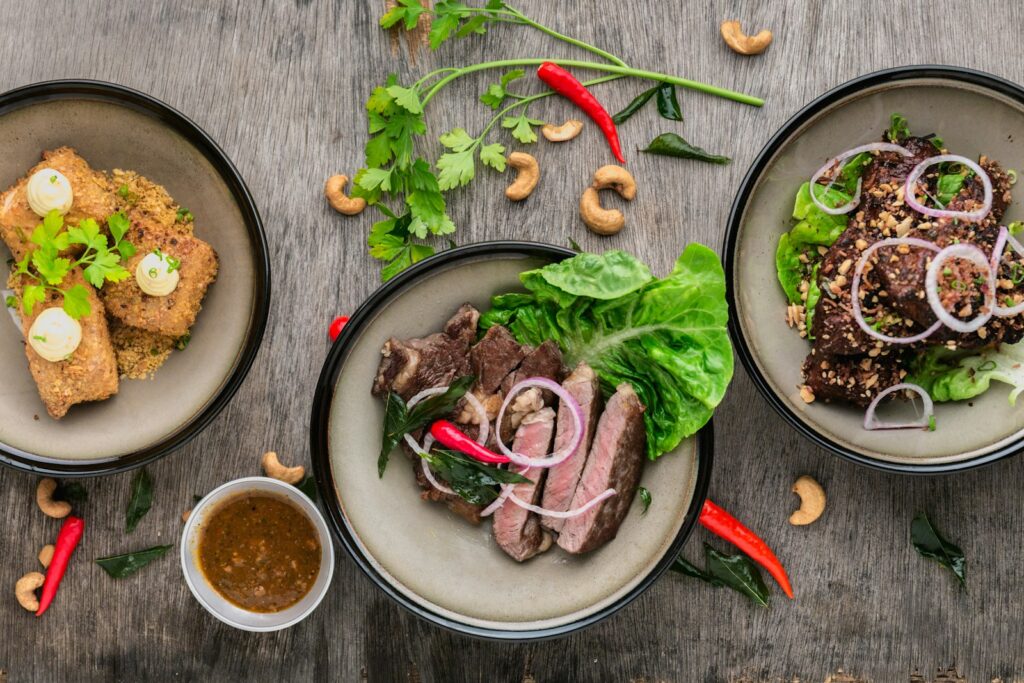
The notion that diet significantly influences health is well established, yet its direct relationship with the immune system—our primary defense against disease—deserves particular attention. While many turn to traditional remedies such as chicken soup or warm tea when feeling unwell, nutritional choices extend far beyond symptom relief. The right foods can actively support immune resilience and reduce susceptibility to illness.
The immune system functions as a complex network of organs, cells, and proteins, continuously working to detect and eliminate harmful pathogens. For this intricate system to operate efficiently, it requires consistent nourishment. Scientific research has repeatedly shown that a well-balanced diet, rich in essential nutrients, plays a crucial role in reinforcing the body’s ability to fend off infections such as colds, gastrointestinal disturbances, and viral illnesses. As immunologist Dr. Cassandra Calabrese emphasizes, “What you put in your body is important for your overall health, including your immune system.” This statement underscores the significant connection between nutrition and immune health.
Enhancing immunity is not dependent on a single superfood. Rather, it involves a comprehensive dietary approach that incorporates a variety of nutrient-dense options. The encouraging news is that many of these foods are accessible in local markets, eliminating the need for restrictive or extreme eating practices. Dr. Calabrese notes that such dietary strategies support immune function not only during flu season but throughout the year.
Below is a selection of foods identified for their immune-supportive properties. These ingredients can contribute to maintaining a well-functioning immune system across all seasons.

1. **Fatty Fish**:When it comes to nurturing your immune system, embracing omega-3 fatty acids is a game-changer. These anti-inflammatory fats are crucial for keeping your immune defenses robust and responsive. Fatty fish are a particularly excellent source of these beneficial compounds, making them a delicious and strategic addition to your regular diet.
Consider incorporating varieties like albacore tuna, herring, mackerel, salmon, sardines, and trout into your meals. These types of fish are renowned for their rich omega-3 content. Beyond their general anti-inflammatory properties, omega-3 fatty acids have been shown to play a significant role in reducing inflammation. This can notably improve airflow and offer protection to your lungs against colds and various respiratory infections. Salmon, for instance, also provides a valuable source of vitamin D, further bolstering its immune-supportive profile.
It’s worth noting that some fish varieties may contain mercury or other contaminants. These could be harmful to fetuses or young children. Therefore, pregnant or nursing women and parents of small children should consult with a doctor regarding fish consumption to ensure safety. For those who do not eat fish, omega-3 fatty acids can also be found in other sources like nuts and seeds, plant oils such as flaxseed, and fortified foods like cereals, yogurt, and soy beverages. This ensures everyone has access to these vital nutrients.

2. **Citrus Fruits**:The moment we feel a sniffle coming on, many of us instinctively reach for orange juice, hoping for a quick dose of vitamin C. This popular practice is rooted in solid nutritional wisdom, as vitamin C is a nutrient renowned for its essential role in immune function. It acts as an antioxidant, actively helping your immune system to produce more white blood cells, which are your body’s primary fighters against infection and disease.
Beyond just oranges, a wide array of citrus fruits offer a rich supply of this vital vitamin. Lemons, limes, and grapefruits are all excellent choices, readily available to boost your daily intake. Furthermore, other fruits like kiwis are also abundant in vitamin C, making them fantastic alternatives to diversify your fruit consumption while still reaping the immune benefits.
Vitamin C contributes to the rapid increase in B cells and T cells, two critical types of white blood cells responsible for secreting antibodies and actively destroying infections. Moreover, this nutrient is integral for maintaining healthy skin and tissue. This serves as the first line of defense, acting as a crucial barrier against the entry of bacteria and other harmful germs. While the jury is still out on whether vitamin C can completely prevent a cold, studies suggest that supplementing with it can help ward off respiratory infections or at least significantly reduce the severity and duration of symptoms if you do fall ill.
3. **Garlic**:More than just a flavor enhancer that elevates countless dishes, garlic is a true powerhouse when it comes to health benefits, notably its potential to supercharge your immune function. This pungent vegetable has been cherished for centuries not only for its distinct taste but also for its medicinal properties, including its positive impact on heart health. Its immune-boosting capabilities are largely attributed to a remarkable compound called alliin, which is transformed into allicin when garlic is crushed or chopped.
The active ingredient allicin is specifically linked to supporting the response of white blood cells, the frontline defenders that diligently fight off flu or cold viruses. The efficacy of garlic in preventing illness has been supported by research. For instance, a study involving 146 participants showed that those who took a garlic extract for 12 weeks were two-thirds less likely to catch a cold compared to a placebo group. This indicates its significant role in bolstering the body’s natural defenses.
In addition to its direct immune support, garlic offers a wealth of further advantages. It possesses both antibacterial and antifungal properties, making it a versatile natural agent against various pathogens. Furthermore, it has anti-inflammatory properties and provides vitamin C, contributing to overall well-being. Historically, garlic has been utilized to combat infections, and it may also aid in lowering cholesterol and blood pressure levels. This cements its status as a multifaceted immune-boosting food.
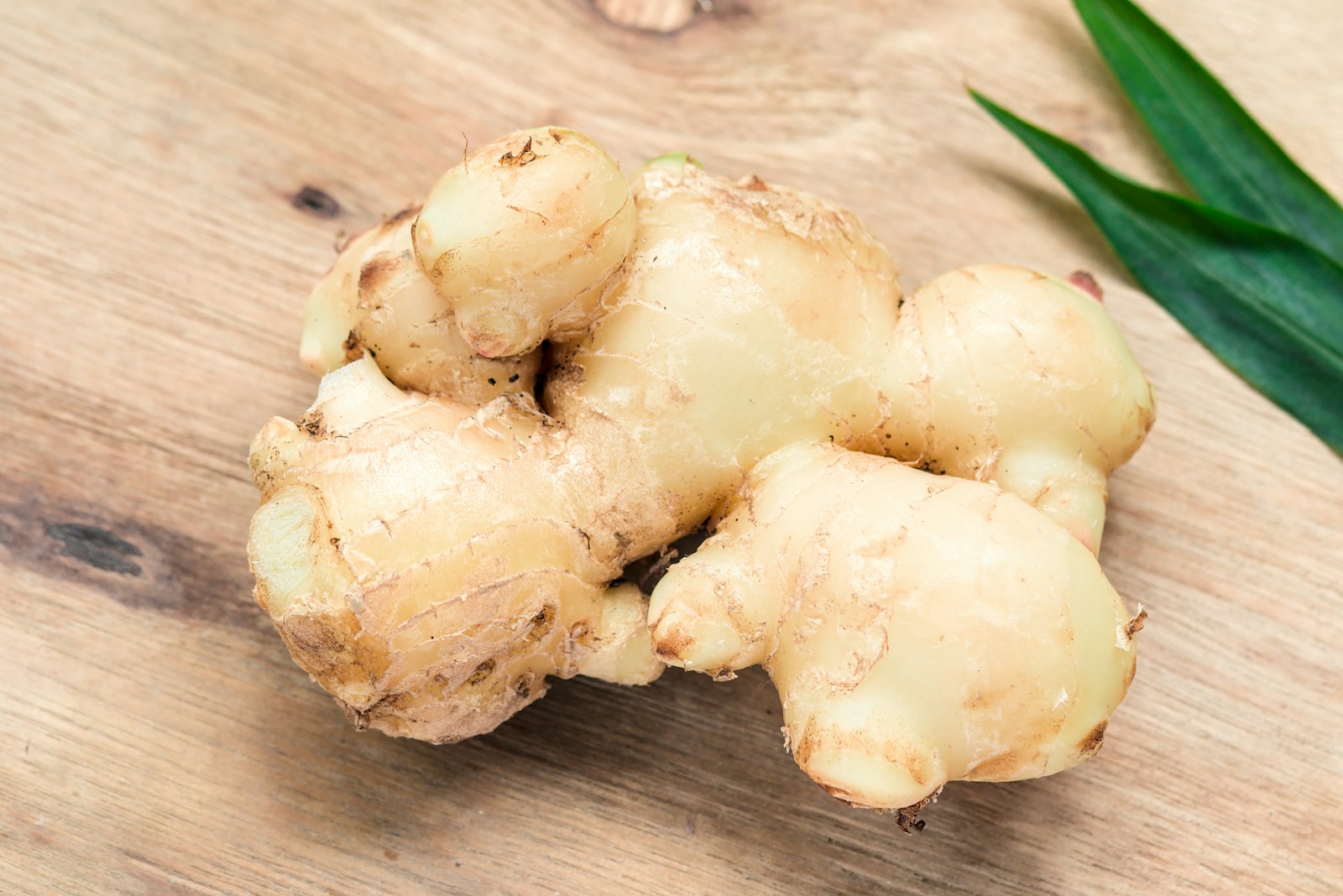
4. **Ginger**:A true staple in Asian and Indian cuisines, ginger has been revered for centuries in Eastern medicine, and for excellent reasons. This aromatic spice is not just a culinary delight that adds a unique flavor boost to everything from baking to wintertime lattes and teas. It’s also packed with vital nutrients like vitamin C, magnesium, and potassium, all contributing to its impressive health profile.
Ginger’s reputation as a powerful health ally is largely due to its potent anti-inflammatory and antioxidant effects. As Dr. Calabrese points out, while ginger is most commonly known for its ability to help with nausea, its anti-inflammatory and antioxidant properties are equally significant for overall health, including immune support. The compound gingerol, a key antioxidant in ginger, plays a crucial role in naturally strengthening the immune system and helping to fend off viruses.
Further research emphasizes ginger’s extensive benefits, highlighting its antibacterial and antiviral qualities. A 2024 article suggested that consuming as little as 1 gram of ginger root daily could provide notable advantages, including anti-inflammatory and antioxidant effects. This makes ginger a remarkably versatile and accessible food to integrate into your diet for enhanced immune function, whether fresh, dried, or as an ingredient in teas and dishes.
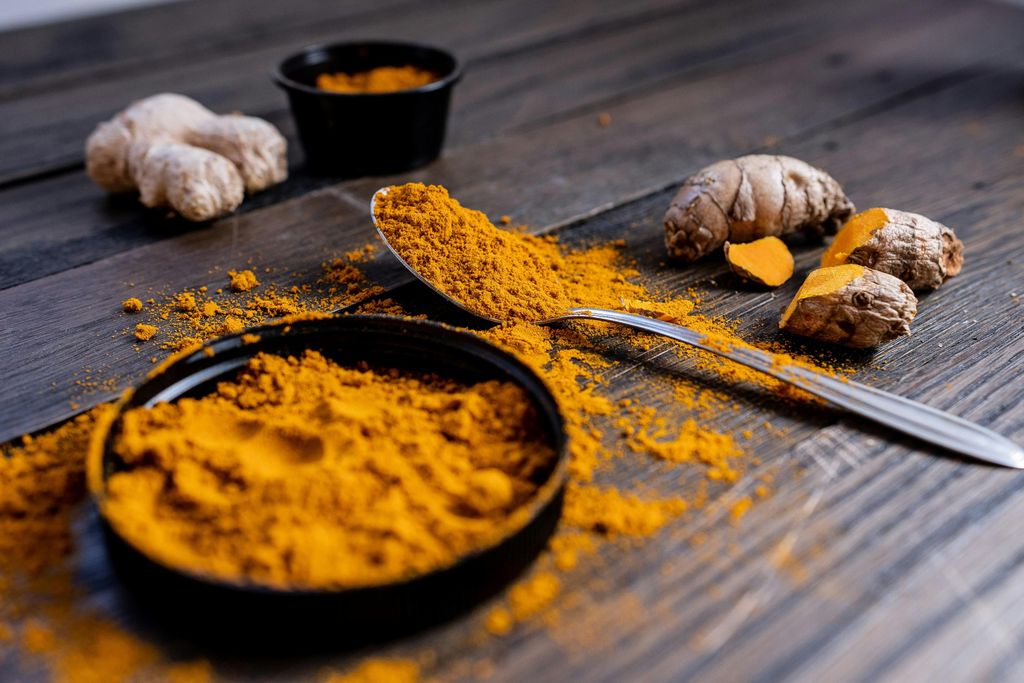
5. **Turmeric**:From vibrant curries to soothing golden lattes, turmeric has firmly established itself as a culinary and wellness staple. This yellow spice is not merely a coloring agent; it’s widely lauded for its remarkable capacity to boost the immune system and act as a powerful antiviral agent. Its impressive immune-modulating properties stem primarily from its high concentration of curcumin, a bioactive compound that is extensively researched for its health benefits.
Curcumin is particularly effective due to its potent antioxidant and anti-inflammatory properties. These are crucial for combating free radicals and lessening chronic inflammation in the body. Research has shown that curcumin can help protect against and treat chronic diseases associated with inflammation, such as arthritis, cancer, and cardiovascular disease, making it a powerful therapeutic agent. By mitigating inflammation and neutralizing free radicals, curcumin helps to reduce damage to your immune system, allowing it to function more effectively.
The benefits of consuming turmeric extend to improving a person’s immune response by modulating the function of immune cells, including B cells. Its inclusion in your diet, whether through cooking or as a supplement, can contribute significantly to a healthier and more resilient immune system. Turmeric’s long history in traditional medicine, now backed by contemporary research, truly underscores its value as an immune-boosting food.
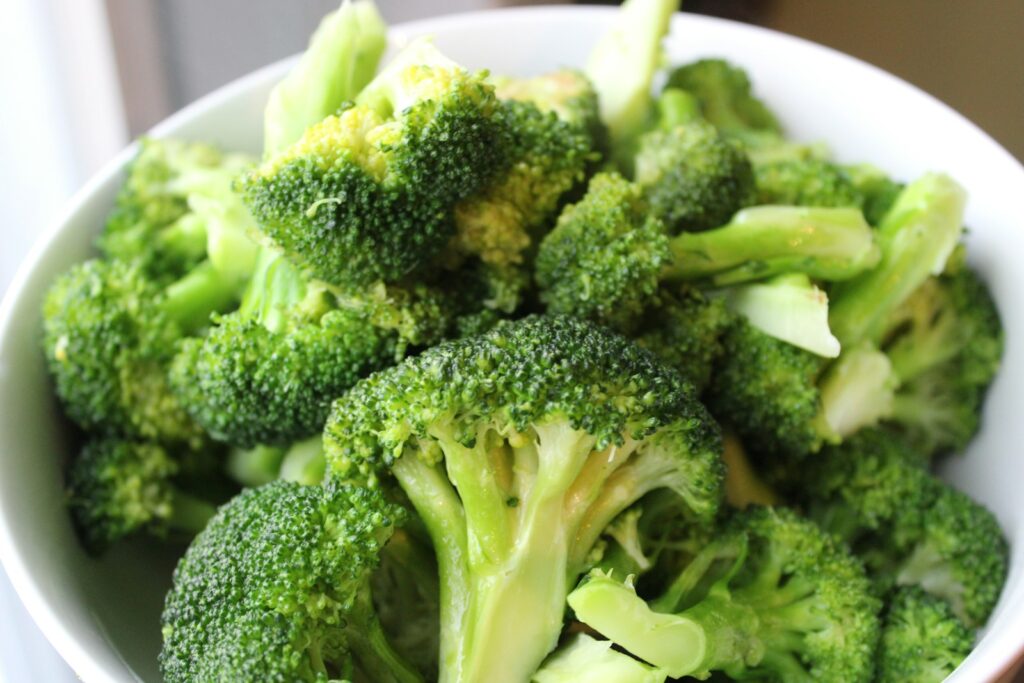
6. **Broccoli**:The arguments you might recall having with your parents about eating your broccoli were, it turns out, well-founded. This stalky green vegetable is a veritable treasure trove of nutrients vital for immune health, including an abundance of vitamins A, C, and E, alongside a good dose of fiber. It’s truly a nutritional powerhouse, making it an indispensable part of a diet focused on wellness.
Broccoli’s unique immune-boosting power largely comes from its sulfur compounds. These compounds play a critical role in aiding the production of glutathione, a powerful antioxidant that is essential for your body’s defense mechanisms. Research indicates that glutathione actively targets and attacks free radicals, thereby significantly reducing the damage they can inflict on your immune system. This protective action helps ensure your immune system can operate at its peak.
To maximize the immune-supporting nutrients in broccoli, consider cooking it as little as possible. Steaming or stir-frying are preferable to boiling, as these methods help to retain more of its nutritional value, including its rich array of vitamins and fiber. Lofton, an expert nutritionist, emphasizes that broccoli’s wealth of vitamins A and C, along with fiber, work synergistically to support a healthy gut microbiome and, consequently, a robust immune system.
7. **Bell Peppers**:While citrus fruits often take the spotlight for their vitamin C content, bell peppers, particularly the vibrant yellow and red varieties, are surprisingly potent sources of this essential immune-boosting nutrient. In fact, ounce for ounce, red bell peppers can contain two to three times more vitamin C than an orange, making them an incredible addition to your immune-supportive diet. They also contain beta-carotene, a potent antioxidant with anti-inflammatory and immune-stimulating properties, further enhancing their health benefits.
Vitamin C is crucial not only for boosting immune cells but also for maintaining the integrity of your skin, which acts as a vital barrier against harmful organisms. Studies consistently show that an insufficient intake of vitamin C can significantly impair your immune response, making you more vulnerable to infections. This highlights just how critical it is to ensure your body receives enough of this powerhouse vitamin daily.
To easily incorporate more bell peppers into your diet, consider adding them raw to salads for a refreshing crunch or stewing them with tomatoes and radishes to create flavorful, nutrient-dense dishes. Roasting or stir-frying them is also an excellent way to prepare them. These methods help retain their nutritional value more effectively than steaming or boiling, ensuring you get the most out of every bite.

8. **Spinach**:Among nature’s green powerhouses, spinach truly stands out. This leafy green vegetable is an excellent source of essential nutrients, including vitamin A—specifically in the form of beta-carotene—which is widely recognized as a potent infection fighter. Beyond its vibrant color and mild taste, spinach also provides a good dose of folate, another nutrient that research suggests can significantly help bolster your immune system.
Spinach’s contribution to immune health isn’t just about individual vitamins; it’s about their synergistic effect. The combination of vitamin A and folate helps support the complex functions of your immune cells, ensuring they are well-equipped to recognize and neutralize potential threats. Furthermore, as a dark leafy green, spinach is packed with antioxidants that can shield your body from environmental stressors and germs, reducing oxidative damage and promoting overall cellular health.
Incorporating more spinach into your diet is surprisingly simple and versatile. While it’s a fantastic addition to fresh salads, you can also effortlessly blend a handful into your morning smoothies for a nutritional boost you barely taste. For something heartier, consider making a delicious and healthy spinach artichoke dip, proving that immune-boosting foods can be incredibly satisfying and easy to enjoy regularly.
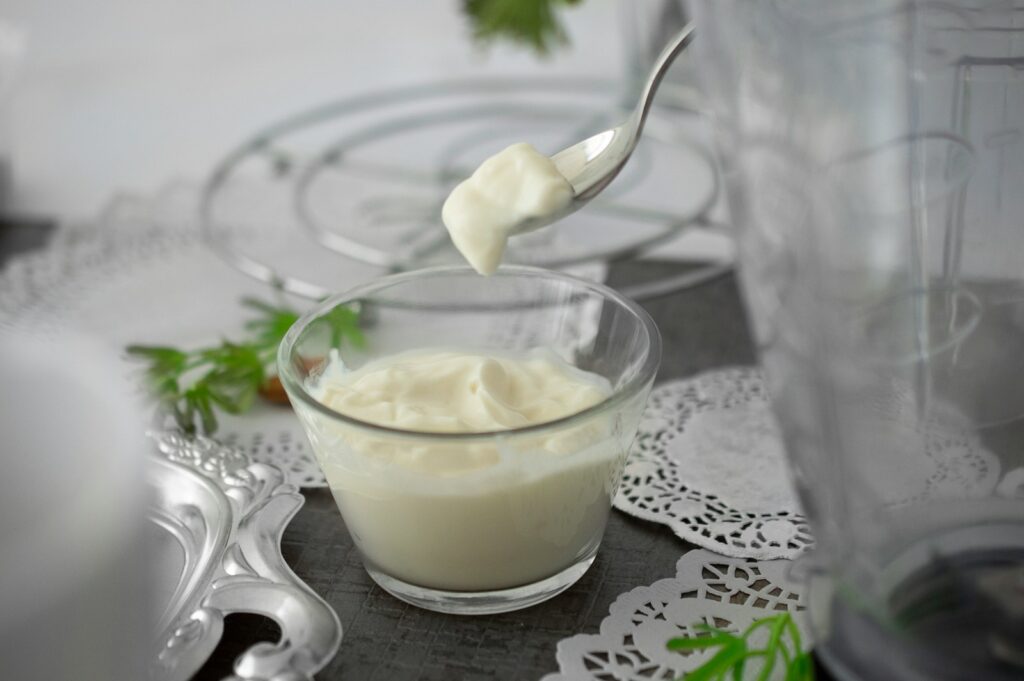
9. **Yogurt**:Yogurt is widely celebrated for its benefits to digestive health, yet its impact extends far beyond being a simple dairy product. Central to its health advantages are probiotics—commonly known as “good bacteria”—which play a vital role in regulating the microorganisms within the digestive tract. This connection is especially significant given that approximately 70% of the immune system resides in the gut.
Scientific research consistently demonstrates the influence of these beneficial bacteria. A 2017 study revealed that daily consumption of probiotic-rich yogurt enhances immune function by increasing the activity of natural killer cells, specialized immune cells essential for limiting the spread of infections within the body. This evidence underscores the importance of maintaining a healthy gut microbiome as a key factor in strengthening the immune response.
Selecting the right yogurt is crucial to maximize its immune-supportive effects. Products labeled with “live, active cultures” and containing minimal added sugar are preferable. Plain yogurts, sweetened naturally with ingredients such as cinnamon or fresh fruit, provide optimal nutritional benefits. Greek yogurt stands out as an excellent option due to its higher protein content and creamy consistency, making it versatile for incorporation into recipes like a refreshing carrot and raisin slaw.
10. **Almonds**:Almonds, often chosen as a quick and nutritious snack, serve as powerful defenders of the immune system. They are especially rich in vitamin E, a potent antioxidant that protects cells from oxidative damage. This protection is essential for preserving cellular integrity, which supports overall health and helps prevent illness.
The effectiveness of almonds as a vitamin E source is enhanced by their healthy fat content. These fats improve the body’s absorption of vitamin E, maximizing the nutrient’s benefits. A half-cup serving, approximately 40 almonds, provides nearly the full recommended daily allowance of vitamin E, making almonds an efficient way to increase intake.
Incorporating almonds into one’s diet is both simple and versatile. Beyond consuming them as a snack, they can be chopped and added to salads for texture, sprinkled over oatmeal or yogurt, or blended into smoothies for a creamy, nutrient-rich boost. Their combination of taste and immune-supporting properties makes almonds an excellent choice for strengthening the body’s defenses.
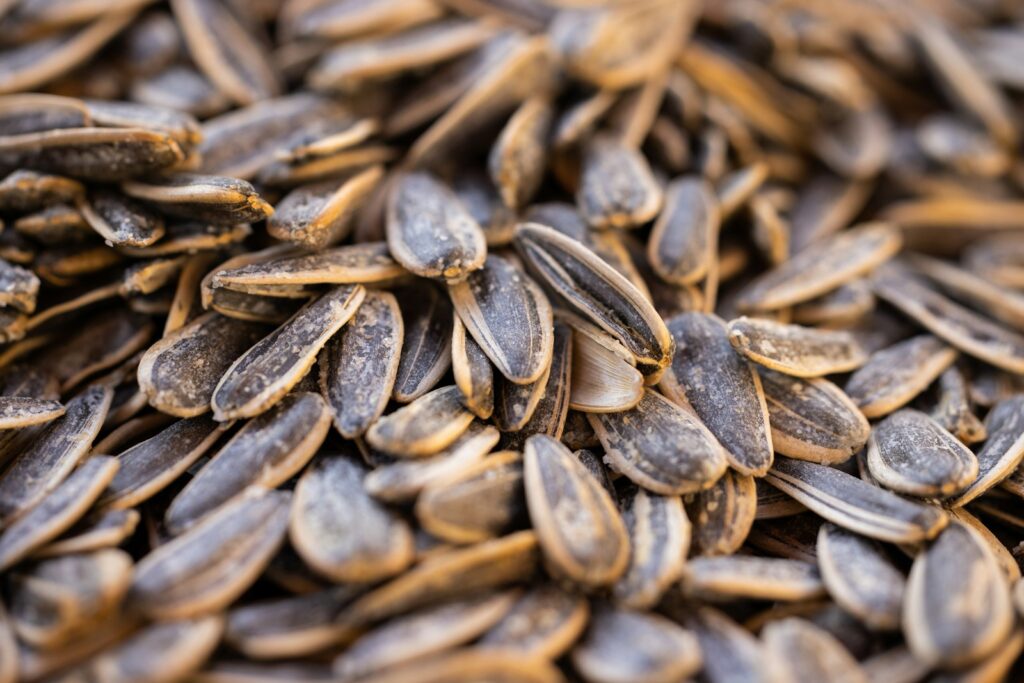
11. **Sunflower Seeds**:Sunflower seeds, often enjoyed as a simple snack or a topping, are a notable contributor to immune health, offering benefits comparable to those of nuts. Like almonds, they provide an excellent source of vitamin E, a potent antioxidant that protects cells from damage and enhances the body’s ability to resist infections.
In addition to vitamin E, sunflower seeds contain a significant amount of selenium, a vital mineral that plays a dual role in immune regulation. Selenium acts as a catalyst, stimulating the immune system to respond effectively to potential threats. Equally important, it signals the immune system to moderate its activity, helping to prevent the harmful effects of chronic inflammation.
This balanced function of selenium—activating immune defenses while preventing excessive responses—positions sunflower seeds as a uniquely valuable food in an immune-supportive diet. Whether incorporated into salads, trail mixes, or consumed on their own as a nutritious snack, sunflower seeds deliver a powerful contribution to overall immune resilience and well-being.
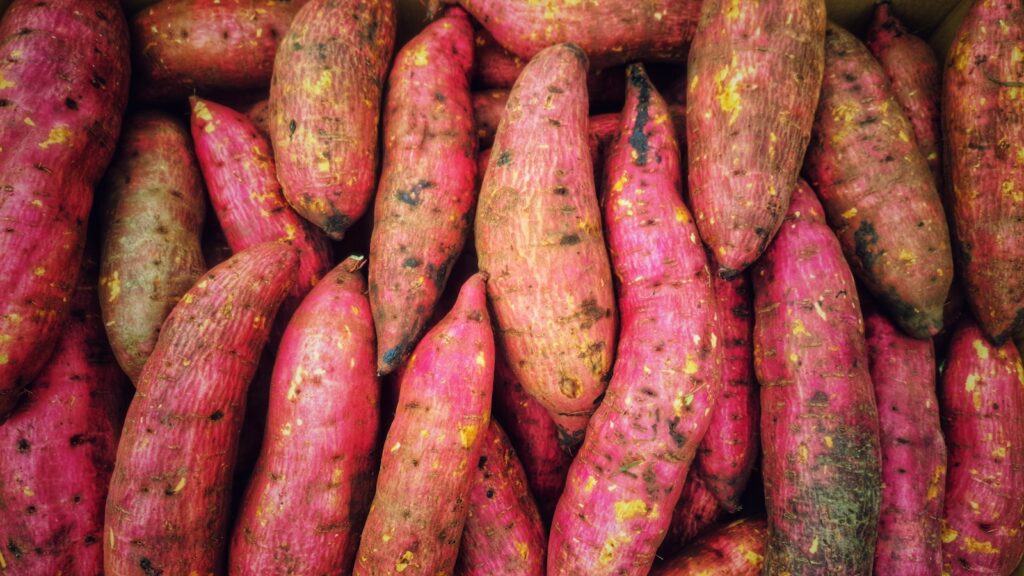
12. **Sweet Potatoes**:While you might not immediately think of skin as an integral part of your immune system, it is, in fact, your body’s first and most crucial line of defense against bacteria, viruses, and other undesirable invaders. To maintain this vital protective barrier, your skin needs a steady supply of vitamin A. Sweet potatoes are an outstanding source of this essential nutrient, specifically in the form of beta-carotene, which gives them their characteristic vibrant orange pigment.
Vitamin A plays a major role in the production of connective tissue, which is a key component of healthy skin, helping it to stay strong and intact. By bolstering the integrity of your skin, sweet potatoes contribute directly to your body’s ability to resist the entry of harmful microorganisms. This makes them a fundamental food for anyone aiming to strengthen their primary physical defense mechanism.
Beyond their direct impact on skin health, sweet potatoes are also incredibly versatile and easy to incorporate into a wide array of meals. Whether roasted, baked, mashed, or added to soups and stews, they offer a naturally sweet and nutrient-dense addition to your diet. Other beta-carotene rich foods like carrots, squash, canned pumpkin, and cantaloupe also provide similar benefits, but sweet potatoes stand out for their widespread appeal and nutritional density.

13. **Mushrooms**:For centuries, mushrooms have been valued worldwide not only for their culinary versatility but also for their significant benefits to immune health. Contemporary research confirms the traditional understanding by revealing the scientific mechanisms behind these effects. Mushrooms, particularly button mushrooms, offer more than just flavor enhancement.
Research demonstrates that mushrooms uniquely enhance the production and activity of white blood cells, vital components of the immune system responsible for combating infections. This increased immune response is crucial when the body encounters harmful pathogens. Additionally, mushrooms provide a natural source of vitamin D, a nutrient essential for proper immune function yet challenging to obtain sufficiently through diet alone.
Beyond supporting white blood cells and supplying vitamin D, button mushrooms are also rich in B vitamins such as niacin and riboflavin, along with selenium. Selenium deficiency has been associated with an increased risk of influenza, emphasizing the importance of selenium-rich foods in maintaining strong immune defenses. Incorporating mushrooms into your diet can therefore deliver a comprehensive boost to your immune system.
14. **Green Tea**:Green tea, long revered in Eastern cultures for its refreshing qualities and health benefits, is increasingly recognized worldwide as a potent immune-supportive beverage. A comprehensive 2022 review highlights that green tea contains powerful polyphenols and other beneficial compounds capable of significantly influencing immune function.
These natural antioxidants have been demonstrated through laboratory, animal, and human studies to regulate various components of the immune system. Polyphenols protect cells from damage and support the intricate network of immune responses, indicating that regular consumption of green tea may promote a balanced and effective immune defense.
In addition to its immune-modulating properties, green tea possesses notable anti-inflammatory effects, which indirectly benefit immune health by reducing systemic stress. Incorporating green tea into daily routines offers a simple and enjoyable means to potentially enhance the body’s natural resilience against illness, making it a valuable component of an immune-boosting diet.
The examination of these fourteen exceptional foods underscores the significant influence of diet on immune vitality. From the omega-3 fatty acids found in fatty fish to the immune-regulating effects of green tea, each food supplies distinct nutrients that collectively reinforce the principle that a balanced and diverse diet forms the foundation of robust health. While no single food guarantees immunity from illness, adopting these dietary habits represents a proactive strategy to strengthen the body’s defenses, enhancing its ability to combat viruses and other pathogens effectively. Embracing an anti-inflammatory diet rich in fruits, vegetables, whole grains, and lean proteins, while limiting saturated and trans fats, nourishes the body’s immune system, ensuring it remains prepared to protect health daily.

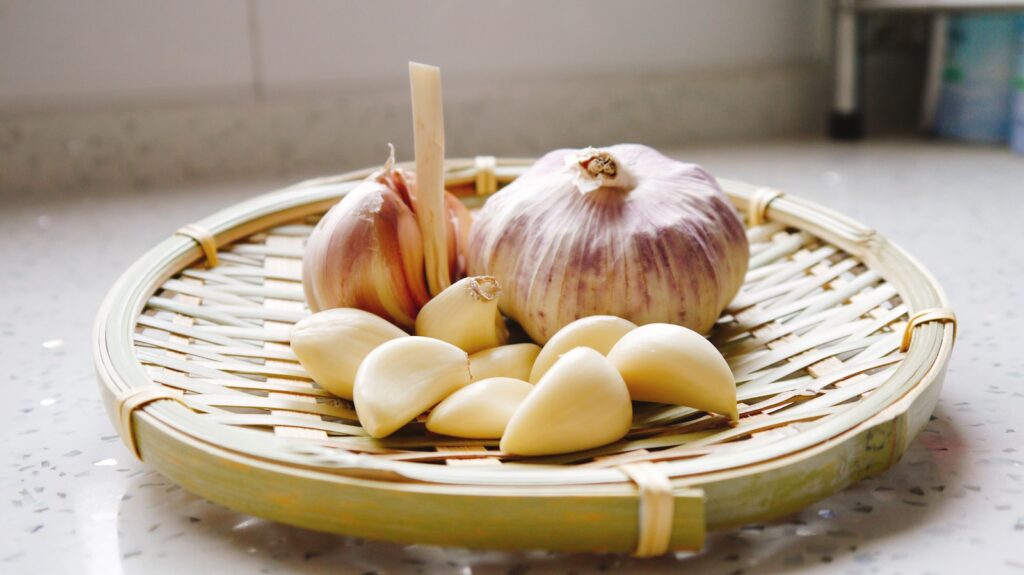
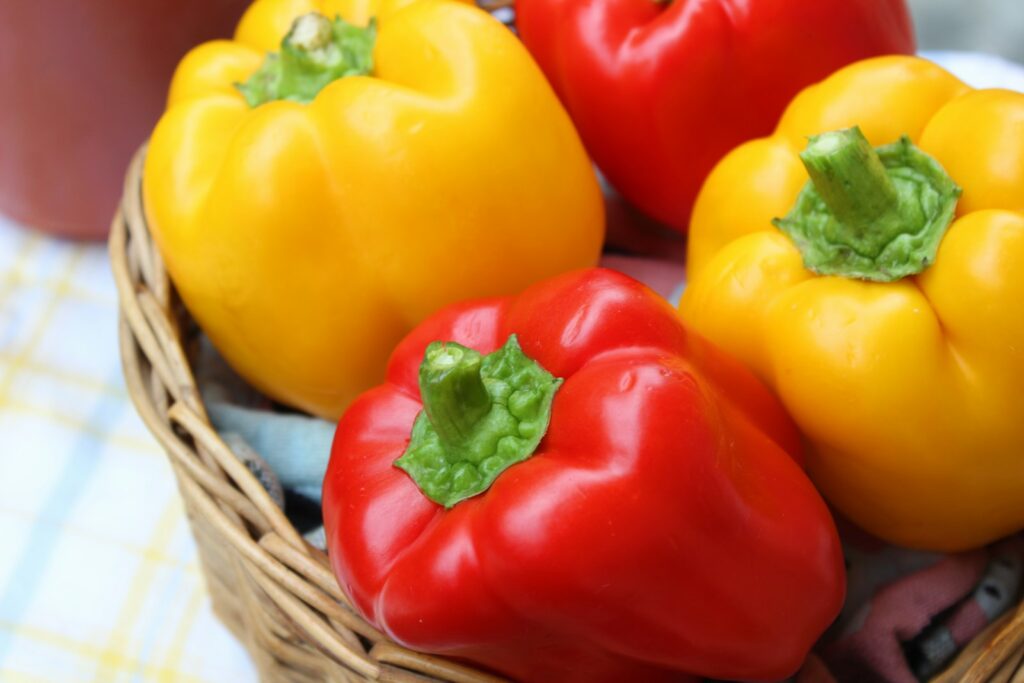
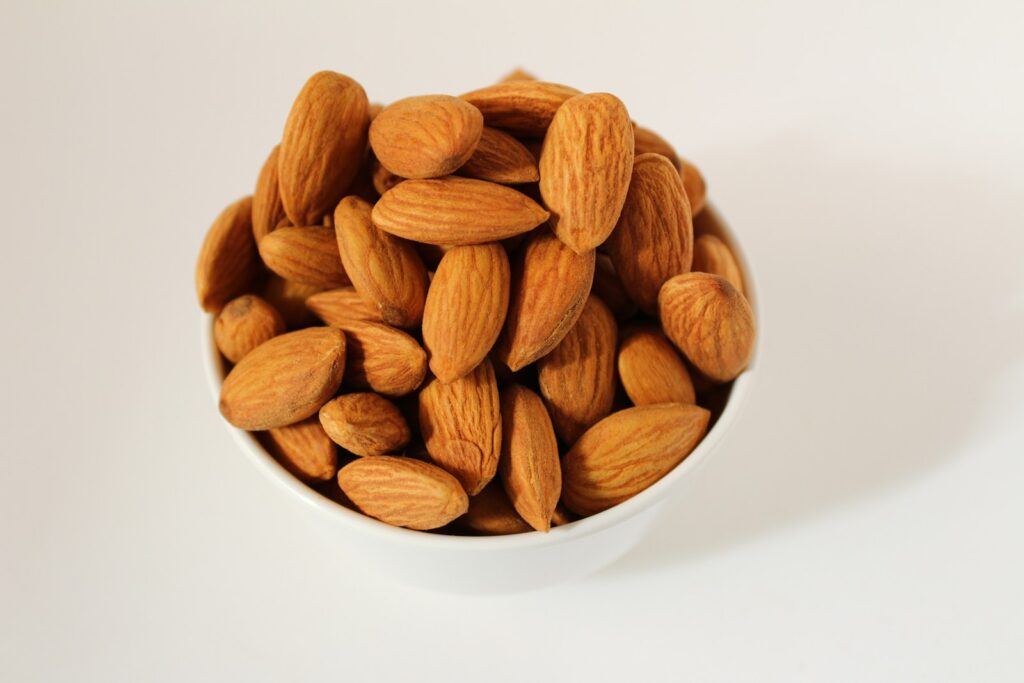
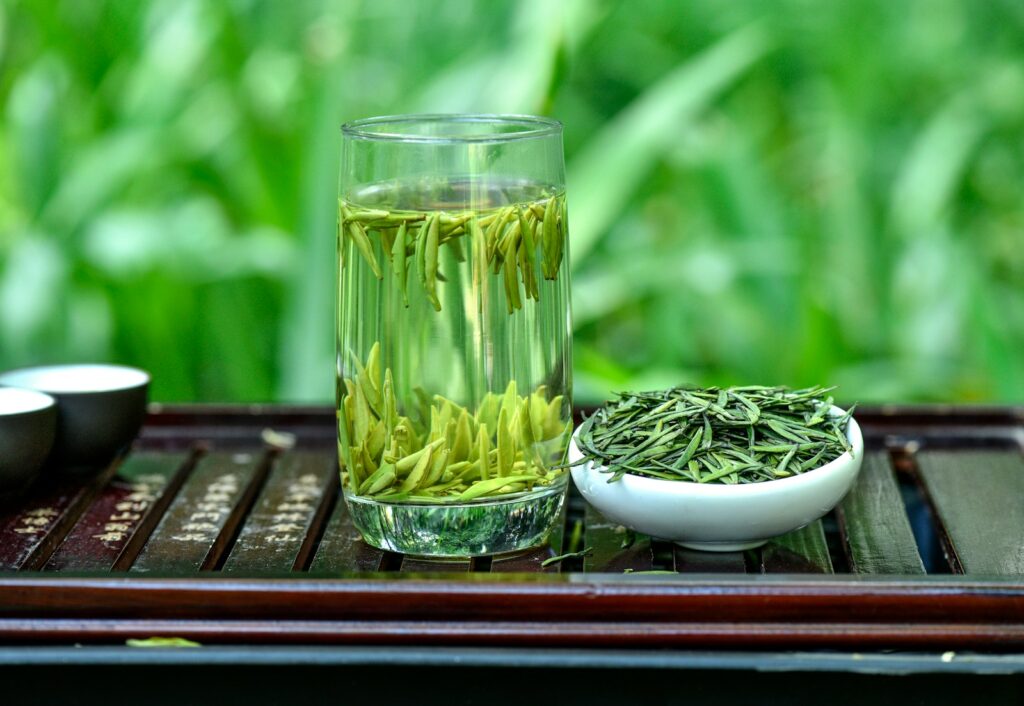
:max_bytes(150000):strip_icc()/GettyImages-2170877990-772527b2ae2e4614b54f8601450b0be8.jpg)
:max_bytes(150000):strip_icc():focal(711x326:713x328)/joanna-carson-johnny-carson-080425-ef84ab9a5fe74660a30098f00c611f2b.jpg)
